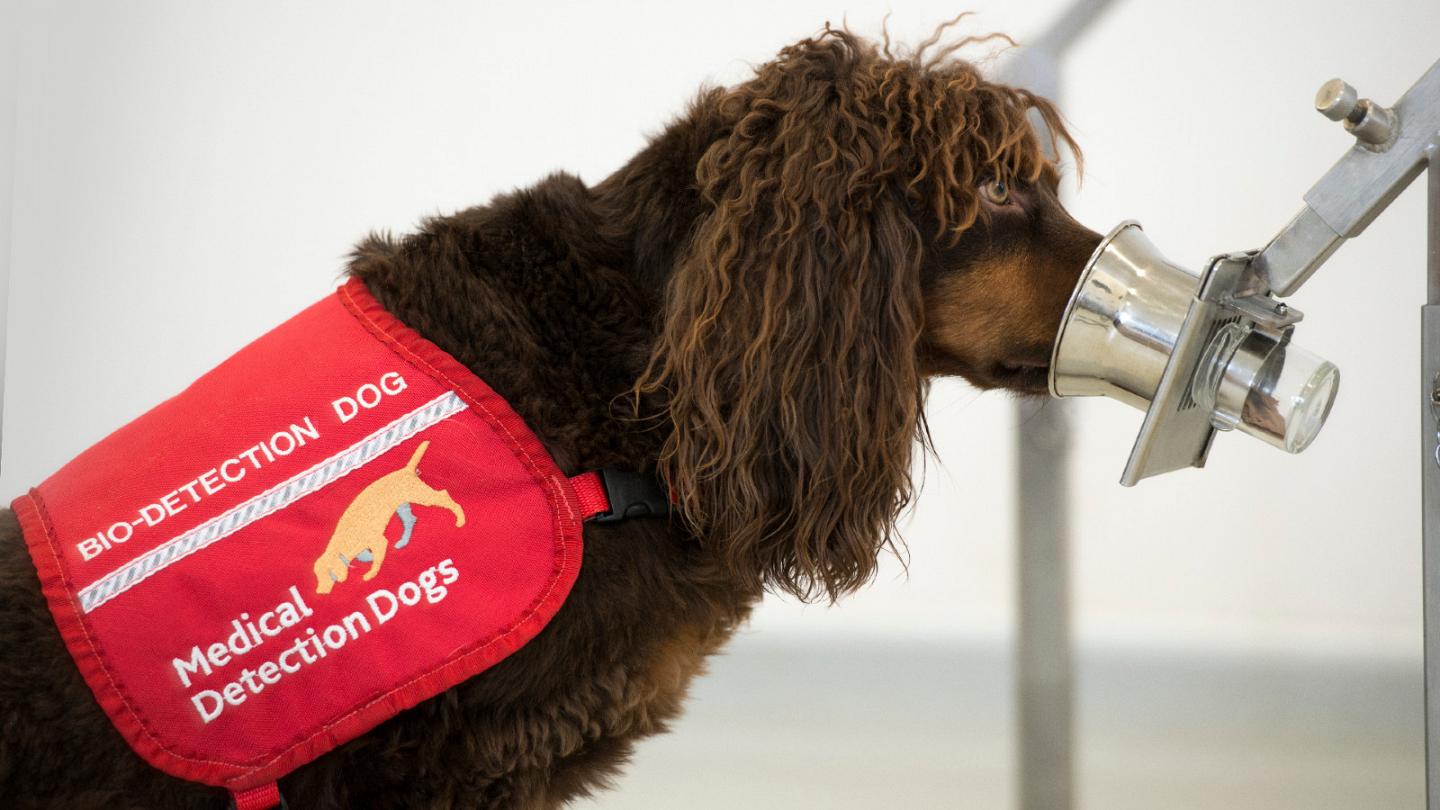Can Dogs Sniff COVID-19?
Early Research Shows Promise for Canine Detection

For some 15,000 years, dogs have been our hunting partners, workmates, helpers, and companions. Could they also be our next allies in the fight against COVID-19?
According to UCSB professor emeritus Tommy Dickey and his collaborator, BioScent researcher Heather Junqueira, they can. And with a review paper published in the Journal of Osteopathic Medicine (JOM), they have added to a small but growing consensus that trained medical scent dogs can effectively be used for screening individuals who may be infected with the COVID-19 virus.
Get the top stories in your inbox by signing up for our daily newsletter, Indy Today.
Not surprisingly, the magic lies in canine sense of smell, which gives dogs the ability to detect molecules in tiny concentrations — “one part in a quadrillion compared with one part in one billion for humans,” according to the paper. Further, with 125-300 million olfactory cells and a third of their brains devoted to interpreting odors, dogs are well equipped with the ability to sniff out the volatile organic compounds that indicate the presence of COVID.
“The dogs are basically smelling the sweat of the person,” Dickey said of a series of experiments by French and Lebanese researchers testing canines’ capacity to sense COVID infection. Although the virus itself has no odor, metabolic products excreted by COVID-positive individuals through their sweat glands were detected by the 18 dogs selected for the study (16 Belgian Malinois, one German shepherd and one Jack Russell terrier) with an accuracy rate of 83-100 percent after only four days of training.
Using dogs to detect disease is not new. In fact, Junqueira has previously published results showing that her scent dogs (beagles, bassett hounds, and mixes of the two) can effectively detect non-small cell lung cancer. “Canines are capable of detecting other types of cancer as well as malaria, Parkinson’s disease, and diabetes,” Junqueira said.
With all the sniffing going on in the presence of an airborne disease, it’s natural to be concerned over whether dogs can catch and transmit COVID-19. It’s still the topic of ongoing research, but evidence points to a low likelihood of transmission.
“Current research supports the use of scent detection dogs for pilot COVID-19 screening studies in venues such as airports and sporting events,” Dickey said. “In addition, the JOM paper points out that another line of research can utilize medical scent detection dogs in the development of medical electronic noses.”
This article was originally published by The Current. Read the full version at news.ucsb.edu.
Every day, the staff of the Santa Barbara Independent works hard to sort out truth from rumor and keep you informed of what’s happening across the entire Santa Barbara community. Now there’s a way to directly enable these efforts. Support the Independent by making a direct contribution or with a subscription to Indy+.



